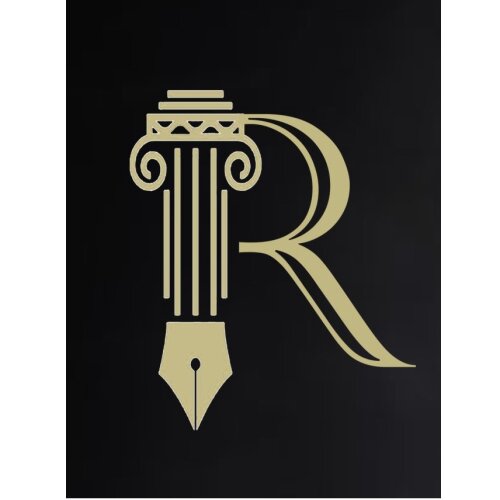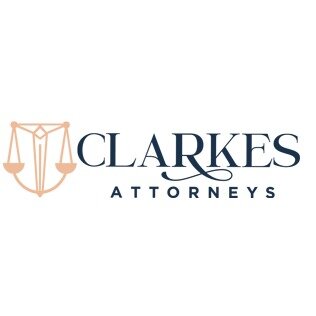Best ADR Mediation & Arbitration Lawyers in Lilongwe
Share your needs with us, get contacted by law firms.
Free. Takes 2 min.
List of the best lawyers in Lilongwe, Malawi
About ADR Mediation & Arbitration Law in Lilongwe, Malawi
Alternative Dispute Resolution (ADR) methods, including mediation and arbitration, provide alternative pathways to resolving conflicts without resorting to conventional court proceedings. In Lilongwe, Malawi, these methods are increasingly recognized for their efficiency, cost-effectiveness, and ability to maintain confidentiality. Mediation involves a neutral third party helping the disputing parties to reach a voluntary settlement, while arbitration involves a neutral arbitrator making a binding decision after hearing both sides. The adoption of ADR has been supported by Malawi’s legal framework to alleviate court burdens and promote amicable settlements.
Why You May Need a Lawyer
There are several situations where you might require legal assistance in ADR Mediation & Arbitration:
- Complex disputes: In cases involving multiple parties or intricate legal issues, a lawyer can help navigate the process effectively.
- Contract disputes: When a business contract includes an arbitration clause, a lawyer is needed to represent parties in arbitration proceedings.
- Enforcement of awards: Legal expertise is essential for enforcing an arbitration award or settlement agreement that a party may be reluctant to honor.
- Understanding rights: A lawyer can clarify the rights and obligations of parties involved in a dispute.
- Negotiation assistance: Sometimes, having legal support during mediation can strengthen one's negotiation position.
Local Laws Overview
In Malawi, the legal framework supporting ADR includes the Arbitration Act, which outlines the rules for arbitration processes. Additionally, court-annexed mediation is encouraged under the court systems to expedite dispute resolution. Mediation and arbitration practices in Lilongwe are designed to be flexible and adapt to the needs of the parties involved, respecting the principles of natural justice and confidentiality. Understanding these local laws is crucial for parties considering ADR as an option for resolving disputes.
Frequently Asked Questions
What is the difference between mediation and arbitration?
Mediation is a collaborative process where a neutral mediator assists the parties to reach a voluntary agreement. Arbitration, on the other hand, involves a neutral arbitrator who hears both sides and makes a binding decision.
Do I need a lawyer for mediation?
While legal representation is not mandatory, having a lawyer can provide guidance and ensure that your interests are adequately represented during negotiations.
Are ADR outcomes enforceable in Malawi?
Yes, settlements reached through mediation can be made enforceable through a consent order, and arbitration awards are legally binding and enforceable under the Arbitration Act.
Can I appeal an arbitration decision?
Appeals in arbitration are limited. The grounds for appeal are usually restricted to procedural irregularities or issues concerning the legality of the arbitration process.
What types of disputes are suitable for ADR?
ADR is suitable for a wide range of disputes, including commercial, family, employment, and contractual disputes, among others.
How long does the ADR process take?
The duration of ADR varies depending on the complexity of the dispute and the willingness of the parties to reach an agreement. It is generally faster than court proceedings.
Is ADR confidential?
Yes, one of the key benefits of ADR is confidentiality. Details of the proceedings and the outcome are not disclosed publicly.
How are mediators and arbitrators selected?
Parties involved typically agree on a mediator or arbitrator. They may also seek recommendations from legal institutions or professional bodies.
What costs are associated with ADR?
Costs vary but generally include fees for the mediator or arbitrator, legal fees, and administrative expenses. ADR is often less costly than litigation.
Can ADR be used in criminal cases?
ADR is predominantly used in civil disputes. Criminal cases involve public interests that are typically addressed through the court system.
Additional Resources
For those seeking further assistance, the following resources can be helpful:
- The Malawi Law Society: A professional body offering guidance and recommendations for legal representation.
- Judiciary of Malawi: Provides resources and information on court-annexed mediation programs.
- Center for Conflict Resolution: An organization that facilitates mediation and provides ADR training.
- Ministry of Justice: Offers resources on legal frameworks and policies related to ADR.
Next Steps
If you require legal assistance in ADR Mediation & Arbitration, consider the following steps:
- Consult a lawyer who specializes in ADR to discuss your case and the best course of action.
- Gather all relevant documents and information related to your dispute to present to your lawyer.
- Explore various ADR options suited to your needs and the nature of your dispute.
- Consider seeking assistance from ADR service providers or professional bodies.
By following these steps, you can effectively navigate the ADR process with the support of legal expertise, ensuring a fair resolution to your dispute.
Lawzana helps you find the best lawyers and law firms in Lilongwe through a curated and pre-screened list of qualified legal professionals. Our platform offers rankings and detailed profiles of attorneys and law firms, allowing you to compare based on practice areas, including ADR Mediation & Arbitration , experience, and client feedback.
Each profile includes a description of the firm's areas of practice, client reviews, team members and partners, year of establishment, spoken languages, office locations, contact information, social media presence, and any published articles or resources. Most firms on our platform speak English and are experienced in both local and international legal matters.
Get a quote from top-rated law firms in Lilongwe, Malawi — quickly, securely, and without unnecessary hassle.
Disclaimer:
The information provided on this page is for general informational purposes only and does not constitute legal advice. While we strive to ensure the accuracy and relevance of the content, legal information may change over time, and interpretations of the law can vary. You should always consult with a qualified legal professional for advice specific to your situation.
We disclaim all liability for actions taken or not taken based on the content of this page. If you believe any information is incorrect or outdated, please contact us, and we will review and update it where appropriate.













